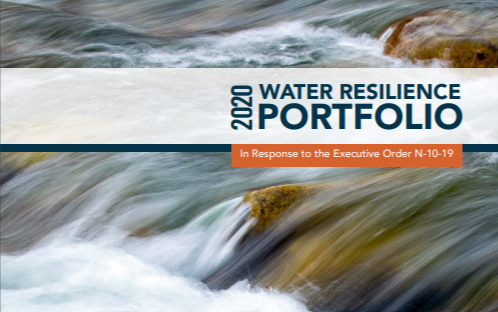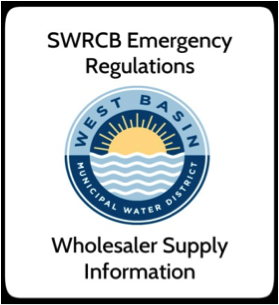 West Basin develops viable plans and initiatives to ensure reliability of the region’s water supplies. They play an important role in reducing the region’s dependence on imported water by expanding the local water supply portfolio in an economically feasible manner. Through effective partnerships and innovative planning, the staff continues to demonstrate a proactive approach to water resource management.
West Basin develops viable plans and initiatives to ensure reliability of the region’s water supplies. They play an important role in reducing the region’s dependence on imported water by expanding the local water supply portfolio in an economically feasible manner. Through effective partnerships and innovative planning, the staff continues to demonstrate a proactive approach to water resource management.
West Basin currently develops three planning documents: the annual Water Use Report, the Drought Rationing Plan and the Urban Water Management Plan, which is released every five years.
 2020 California Water Resilience Portfolio
2020 California Water Resilience Portfolio
Governor Gavin Newsom released the final California Water Resilience Portfolio on July 28, 2020 as the state’s blueprint for addressing extreme droughts and floods, rising temperatures, declining fish populations, over-reliance on groundwater and other challenges.
West Basin submitted public comment to the agencies responsible for preparing the Draft of the California Water Resilience Portfolio in February 2020 expressing the specific needs and priorities of the region West Basin serves, such as:
- Delta Conveyance: West Basin continues to develop local water resources, diversifying the region’s water supply portfolio and reducing demand on imported water and supports a permanent solution in the Delta, in which the Portfolio correctly identifies Delta Conveyance as a priority that California must continue to advance.
- Water Recycling and Reuse: West Basin supports the Portfolio’s goal to recycle or reuse at least 2.5 million acre-feet a year within a decade and believes it is vital that the Administration continue towards the advancement of potable reuse drinking water augmentation regulations, as required by AB 574. As proven in the West Coast Basin, the advancement of recycled water can, and will aid communities throughout California in achieving the Portfolio’s goal to strengthen and secure groundwater supplies by supporting the transition to sustainable use.
- Desalination Technology: West Basin has a proven track record in utilizing innovation and technology to develop new local and drought proof water supplies, including research and development in the operations of an inland brackish desalination facility. The Portfolio ensures consideration of new desalination projects according to existing state criteria including the Water Board’s Ocean Plan and the Coastal Act. This point in the Portfolio supports West Basin’s efforts to continue examining the conversion of ocean water into drinking water with technologies that are environmentally responsible, energy-efficient and cost effective.
- Inter-government coordination: West Basin supports the Portfolio’s vision to enable local government to make the necessary decisions to regionally tailor its approach to address demands, while continuing to assert the strong role of California’s government to regulate and set standards. It is vital that local government and the State build upon the past work with the federal government to ensure a collaborative approach to managing and operating the Central Valley Project and State Water Project.
West Basin supports the vision set forth in the Portfolio, and is confident that it will enable California to meet the challenges ahead. The District remains dedicated to working with the California Environmental Protection Agency, California Natural Resources Agency, California Department of Food and Agriculture and the Administration, to carry out California’s Water Resilience Portfolio with a common vision for California’s future.
 SWRCB Emergency Regulations – Wholesaler Supply Information
SWRCB Emergency Regulations – Wholesaler Supply Information
Pursuant to the Governor’s Executive Order B-37-16, the State Water Resources Control Board issued new Emergency Regulations in May 2016 which require urban water wholesalers, such as West Basin, to provide information on the reliability of water supplies they expect to deliver to each urban water supplier in the next three years. West Basin’s completed supply availability analysis and supporting documentation is available here.
Recognizing persistent yet less severe drought conditions throughout California, on February 8, 2017, the State Water Board adopted an emergency water conservation regulation to amend and extend the May 18, 2016 regulation.
For up-to-date information on the Emergency Regulations, visit the Emergency Conservation Regulation webpage at http://www.waterboards.ca.gov/water_issues/programs/conservation_portal/emergency_regulation.shtml.

